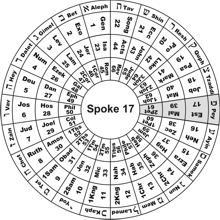Four Purim Mitzvot
And Mordecai wrote these things, and sent letters unto all the Jews
that were in all the provinces of the king Ahasuerus, both nigh and far,
To stablish this among them, that they should keep the fourteenth day of
the month Adar, and the fifteenth day of the same, yearly, As the days wherein the
Jews rested from their enemies, and the month which was turned unto them from
sorrow to joy, and from mourning into a good day: that they should make them days of feasting and
joy, and of sending portions one to another, and gifts to the poor.
Esther 9:20ff (Spoke 17, Cycle 1))
The four Rabbinical Mitzvot associated with the festival of Purim are derived from the highlighted
verse above. Below is a reproduction of the
Purim rules  published at jewishglobe.com. published at jewishglobe.com.
The Observance of the Day
There are four mitzvot which are obligatory on
Purim: the reading of Megillat Esther, festivity and rejoicing, Shalach Manot
(sending gifts), and Matanot L'Evyonim (gifts to the poor). Explanations
follow:
Reading of Megillat Esther
One is required to read the Megillah both by day and night.
One may read the Megillah all night until dawn,
and from sunrise until sunset. If one has read the Megillah before sunrise but
after dawn, one has fulfilled the obligation to read the Megillah. Both men and
women are obligated to hear the Megillah.
Feasting and Rejoicing
It is a mitzvah to have a sumptuous meal on Purim, including
meat dishes and wine. This feast must be held during the day.
When Purim is in
on Erev Shabbos - as it was in Jerusalem in 5758 - one must begin one's meal
early in the afternoon before Mincha in order that one can finish early enough
so as to have a good appetite for the Shabbos meal. The miracle of Purim came
through wine. Vashti's downfall and Haman's downfall came through a wine feast!
There is also a custom of drinking until intoxication
as our Sages tell us, "A
person is obligated to drink on Purim til he no longer knows the difference
between cursed is Haman and blessed is Modechai." If one fears that he or she
may be harmed by excessive drinking of wine or come to levity thereby or even
forget the required brachot one is required to make, drinking excessively is not
required.
[Note: The tradition concerning cursed is Haman and blessed is Mordecai is based on the
fact that these phrases share the common numerical value of 502:
Cursed is Haman
ארור המון
Arur Haman |
= 502 = |
Blessd is Mordecai
ברוכ מרדכי
Baruk Mordecai |
It is interesting that the Number 502 coincides with the value "flesh" and "You may freely eat"
both from Genesis 2 (see Gematria Reference entry for the number 502.
Matanot L'Evyonim (Gifts for the Poor)
One is required to give at least two gifts to two poor people on Purim, in other words,
one gift to each. Even a poor person who subsists on charity is required to
perform this mitzvah. This obligation can be fulfilled through food or drink or
even clothing. The gift should be sufficient to buy bread. The gifts to the poor
are given during the day, usually after the reading of the
Megillah.
Shalach Manot (Gifts to One Another)
One must give a
gift which consists of two portions to another person. Both men and women are
included in this mitzvah. The food must consist of something edible or drinkable
without further cooking or preparation. One may send meat, fish. cooked pastry,
wine and other beverages. These gifts should be sent to as many people as one
chooses but they should be sufficient to convey regard for the recipient. If at
all possible, these gifts should be sent by messengers, rather than delivered
personally because the Megillah uses the word mishloach (sending) for these
gifts.
| 


